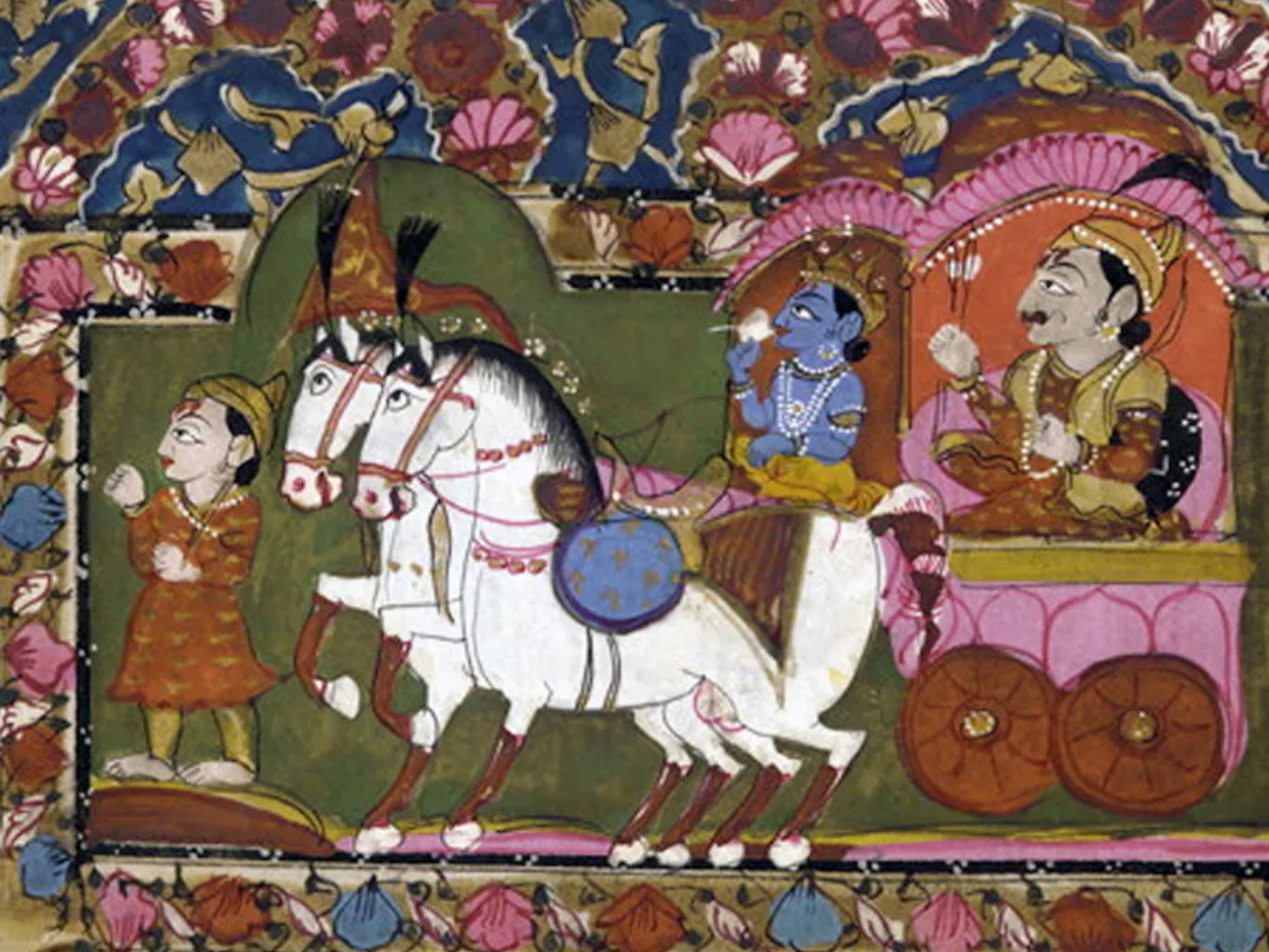What the ancient Indian text Bhagavad Gita can teach about not putting too much of our identity and emotions into work

Robert J. Stephens, Clemson University
Krishna explains to Arjuna that his actions or karma should follow dharma, the religious and social obligations inherent in his role as a warrior of the Pandavas. And the proper dharmic attitude toward the results of action is nonattachment.
The word that describes this nonattachment is “nishkama,” or without desire – the proper spirit in which karma is to be undertaken. From the perspective of the Gita – a perspective shared widely in traditional Indian thought – desire is inherently problematic due to its insistent preoccupation with the self. By reducing desire, however, one can perform one’s work or action without the constant distraction of seeking praise or avoiding blame.
Furthermore, since knowing the outcome of one’s actions is impossible, the Gita advises performing one’s duties without a sense of ego in a spirit of service to the world. “Therefore, without attachment, always do whatever action has to be done; for it is through acting without attachment that one attains the highest state,” as Krishna says to Arjuna (3.19).
The flow state
In his modern classic “Flow: The Psychology of Optimal Experience,” psychologist Mihaly Csikszentmihalyi writes about the optimal mental state that may be experienced while performing an engaging task. Csikszentmihalyi describes “flow” as a mental state where one is fully immersed in the task at hand. In such a state, attention is focused on the work being done without any self-conscious concerns about performance or outcome.
By way of example, Csikszentmihalyi asked readers to consider downhill skiing. He noted that while one is fully engaged in the process itself, there is no place for distraction. For a skier, he said, “There is no room in your awareness for conflicts and contradictions; you know that distracting thought or emotion might get you buried face down in the snow.”
Csikszentmihalyi’s research suggests that problems like distraction, feeling detached from one’s work, and job dissatisfaction can arise when people lose sight of the action of work itself. As Csikszentmihalyi writes, “The problem arises when people are so fixated on what they want to achieve that they cease to derive pleasure from the present. When that happens, they forfeit their chance of contentment.”
Acting without attachment
A fragmented mind that approaches work or action with an agenda of gaining power, wealth or fame cannot perform at its best. The Gita suggests that the secret to success at work is cultivating a balanced state of mind that isn’t fixated on ego inflation and self-promotion.
It is impossible to be fully present during the performance of a task if one is speculating about unknowable future contingencies or ruminating about past outcomes. Likewise, for Csikszentmihalyi, cultivating the “flow state” means actively remaining present and engaged while performing a task.
Csikszentmihalyi’s writings about the “flow state” resonate with the advice of Krishna in the Gita: “As ignorant people perform their duties with attachment to the results, O scion of Bharat (an epithet for Arjuna), so should the wise act without attachment, for the sake of leading people on the right path” (3.25).
Nishkama karma and the “flow state” are not identical ideas. However, they share at least one fundamental assumption: Focusing on the task at hand, with no thought of gain or loss, is necessary for achieving our best, most satisfying work.
(From : The Conversation)


















Facebook Comments